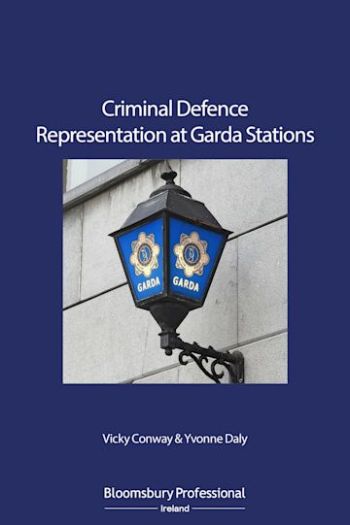
A comprehensive guide to the work and practice of solicitors defending suspects in Garda stations in Ireland. Drawing on research and both national and international law, it explores what the role of the solicitor is in the Garda station, and what role the interview plays in the criminal justice process. It reflects on what the law is, contextualises the law, provides practical guidance on criminal defence at the Garda station and provides examples of how difficulties are overcome.
The book takes an interdisciplinary approach, providing the most comprehensive analysis of the criminal defence process in the Garda station. It outlines the skills necessary to defend suspects in Garda stations, which differs so greatly from court, and takes the practitioner through the entire process from first contact, to deciding to attend to pre-interview consultation. With a focus on dealing with the specific needs of more vulnerable clients before looking at the interview itself, particular attention is paid to the thorny issues of disclosure and the right to silence, before considering some of the more practical dimensions of acting in criminal defence work.
The book is required reading for all criminal defence practitioners, prosecutors, defence barristers and those working in this area. Dr Vicky Conway and Professor Yvonne Daly have provided specialist training in this area to solicitors and Gardai in Ireland through the SUPRALAT training programme and it draws on much of that training for suspect interviews. The SUPRALAT project, funded by the European Union, developed training for criminal defence practitioners on attending police stations. It focuses on advancing the skillset needed for consulting with clients, attending interviews and related work with the concept of active criminal defence at its core. Professor Ed Cape of the University of Bristol, author of Defending Suspects in Police Stations, said: 'The SUPRALAT training programme is the best training for police-station lawyers that I have seen anywhere in the world.'
Beyond practitioners, this book will also be of interest to policy makers, academics and students in the criminal justice space, both domestically and internationally. Not only is increasing attention being paid across Europe to the practice of criminal defence work (the original SUPRALAT training has been built upon by the NEPRALAT network) but there is also increased attention being paid in socio-legal work to the practice of criminal defence representation. With a range of European Directives in this area focused on suspects rights, this work is also hugely relevant in the human rights field.